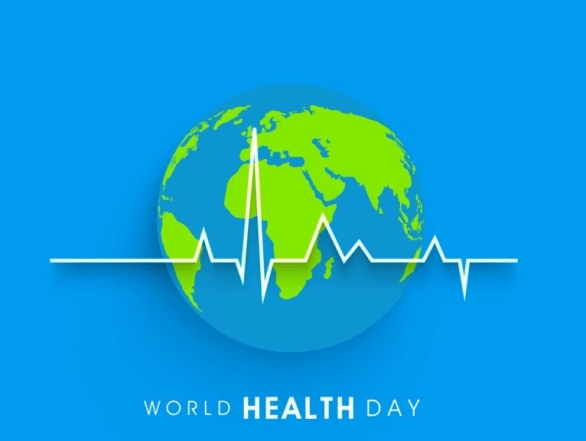News
World Health Day

World Health Day (WHD) is a global health awareness day celebrated every year on 7 April, under the sponsorship of the World Health Organization (WHO). The theme for 2018 is Universal health coverage: everyone, everywhere, following the slogan “Health for All”.
Some countries in the world have already made significant progress towards universal health coverage (UHC), but half the world’s population is still unable to obtain the health services they need.
Health care expenses are pushing hundreds of millions of people into poverty. Currently, nearly a billion people spend 10% of their household income on health expenses for themselves, a sick child or another family member. For almost 100 million people, these expenses are high enough to push them into extreme poverty, forcing them to survive on just $1.90 or less a day.
First celebrated in 1950, WHD aims to raise public awareness about health issues and concerns. It is celebrated to remember the establishment of WHO, and draw attention to major health issues in the world.
For WHD 2018, WHO calls on world leaders to take concrete steps to move towards UHC. This means ensuring that everyone, everywhere can access quality health services without facing financial hardship, as set out in the Sustainable Development Goals agreed in 2015.
In the WHO European Region, some countries do well in meeting UHC goals, but all of them can do better to secure financial protection, especially for poorer people. New analysis finds that households in the poorest fifth of the population are most likely to experience catastrophic health spending, often due to out-of-pocket payments for medicines. They are also most likely to forego or delay seeking health care due to cost and other barriers to access. In the coming months, WHO Europe will publish a series of reports on financial protection in 25 countries. The context-specific analysis will provide evidence that policy makers can use to ensure out-of-pocket payments do not push people into poverty.
CNVP is a leading international NGO and civil society organization that is active in all six Balkan countries. It uses evidence-based analysis to improve the sustainable livelihoods of rural communities (including better health standards) affected by the ongoing process of environmental and climate change within a policy framework of European accession.
